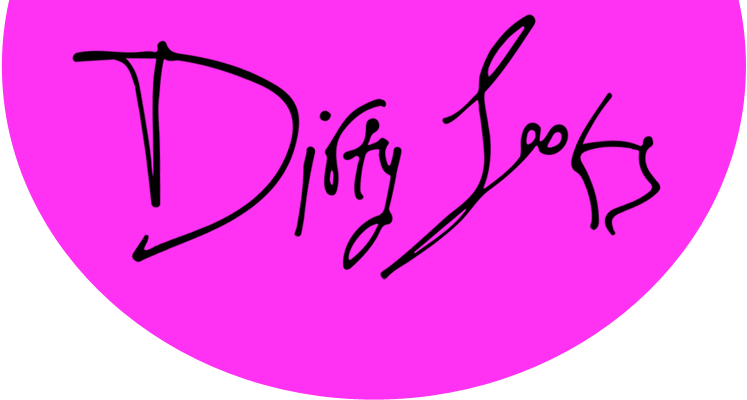7377 Santa Monica Boulevard
West Hollywood, CA 90046
FREE!
Rick Castro Q&A with Bradford Nordeen
Rick Castro, *Fertile La Toyah Jackson*, Umatic tape on digital video, 52min., 1993 RESTORATION PREMIERE!
Vaginal Davis launched her groundbreaking publication Fertile La Toyah Jackson in the late 1980s. The photocopied zine brimmed with local art and music factoids, with styling and photos by Rick Castro (working under the alias Beula Luv), pieces of celebrity gossip and quickly established the queercore music scene by detailing (one could argue “exaggerating”) Ms. Davis’ musical projects: Cholita; The Afro Sisters; Black Fag; and Pedro, Muriel and Esther. Establishing Davis as an erstwhile chronicler of the alternative musical movement, Tower Records even signed an international distribution deal for the black & white 8.5x11” publication. Dennis Cooper likened its loquacious contents to Kenneth Anger’s Hollywood Babylon series, on account of its insider gossip, celebrity sex stories and fantastic lore that the Davis presented as fact.
In 1993, Davis teamed up Rick Castro (Hustler White) to make Fertile move. Together they created two VHS volumes of the zine, which captured the zeal of the publication, but also documented Los Angeles in transition, as shows like Melrose Place began to make their city streets a mass culture stomping ground. Posing as an MTV VJ, Davis walks the Santa Monica strip for segment “Streetwalker Fashions” interviewing the trans sex workers there, transforming the boulevard into a red carpet affair as she asks, “who are you wearing?” Other chapters depict lost West Hollywood haunts like Eat A Pita, The French Marketplace and the mirrored hustler haven, Numbers. Brimming with local talent, like Taste of Latex editor Lily Burana, Iris Parker of Madame X, RuPaul even makes an appearance, as she promotes her breakout single “Supermodel” and sits for a one-on-one interview with Ms. Davis.
Dirty Looks is thrilled to screen a new restoration of Fertile La Toyah Jackson Volume 1, produced with the support of the City of West Hollywood Arts Division’s Transgender Arts Initiative, under the stars of West Hollywood and in the former hustler haven of Plummer Park. Copies of Dirty Looks Volume 4 will be distributed at the event, featuring a chapter chronicling the title, with contributions by Castro, Joshua Chambers-Letson, Rudy “Bleu” Garcia, Brontez Purnell and Linda Simpson.
Rick Castro is a Los Angeles-based photographer, filmmaker & writer known for his work focusing on fetish and desire. In 1994 Rick's VHS footage of hustler interviews inspired Bruce LaBruce to collaborate as co-directors/writers for the film Hustler White, (1996). The film was a great success internationally and is listed by the Los Angeles Times top 100 underground films of the 20th century. Castro also directed a documentary for MTV called, Plushies & Furries, (2001) the first mainstream project about the furry community. Fertile LaToyah Jackson video magazines, (1993) are examples of Castro’s early raw, jovial film work with then unknown “blacktress" Vaginal Davis as star.
Vaginal Davis is the internationally revered intersexed doyenne of intermedia arts and sciences. She takes public discourse to Dementia 13 levels as she spells out the queer and blatino experience in her own inemitable fashion creating new words out of thin air and crashing bull-in-a-Madame Mau China-Shop style over notions of propriety and reality.
This event was made possible with the support of the City of West Hollywood through a Transgender Arts Initiative grant.
The City of West Hollywood's Arts Division delivers a broad array of arts programs including: Art on the Outside (temporary public art), the City Poet Laureate program, Drag Queen Story Hour, Free Theatre in the Parks, Grants Programs, Holiday Programming, the Human Rights Speaker Series, Library Exhibits, National Poetry Month, the One CityOne Pride LGBTQ Arts Festival, Summer Sounds + Winter Sounds, Urban Art (permanent public art), and the WeHo Reads literary series. For more information please visit www.weho.org/arts | @wehoarts
The City of West Hollywood was officially founded on November 29, 1984. Previously, the area had been an unincorporated section of Los Angeles County. Cityhood was proposed by an unlikely coalition of LGBT activists, seniors and renters who came together to form a City with progressive policies and strong tenants' rights protections. For nearly 35 years, the City of West Hollywood has demonstrated that it is like no other city in the world. West Hollywood has become one of the most influential small cities in the nation. No other city of its size has had a greater impact on the national progressive public policy agenda. A strong spirit of community activism and civic pride thrives in the City and people from all over the globe visit to experience its iconic destinations, such as the rainbow crosswalks and LGBT clubs on Santa Monica Boulevard (historic Route 66), trendy shopping on Melrose Avenue, and nightlife on The Sunset Strip. www.weho.org | @WeHoCity











































